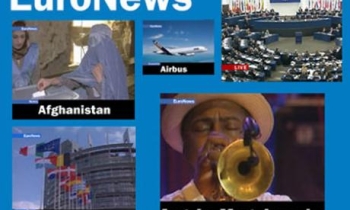The giants of the Internet have been hauled up and accused of colluding with China's secret police and censors to wield a "cyber sledgehammer of repression". At a hearing of the US House international relations subcommittee, Yahoo, Cisco Systems, Microsoft and Google were repeatedly accused of collusion with an oppressive regime, and of selling out the principles of democracy and free speech for profit by bowing to China's demands to censor web content and monitor email, the Guardian reported.
"US technology companies today are engaged in a sickening cooperation decapitating the movements of Chinese dissidents," human rights subcommittee chair Chris Smith said at the hearing. Smith will soon introduce the Global Online Freedom Act of 2006 that aims to "protect United States businesses from coercion to participate in repression by authoritarian foreign governments."

The legislation aims to limit the ways businesses can operate in China, especially how they interact with Chinese authorities and censor information. It deems that any American company that creates, provides, or hosts a search engine or content hosting service may not host those services within certain countries or censor content. They also will not be able to give personally identifying information that would be used for anything other than legitimate crime fighting to foreign law enforcement. Penalties for infractions could lead to fines and the possibility of lawsuits.
The session, in a crowded hearing room, was convened by the House subcommittee on Africa, global human rights and international operations. It was the most extensive public airing of the companies' positions since criticism started gathering steam well over a year ago, the New York Times reported. Among the chief issues is the alteration of some of the companies' online offerings in the Chinese market – from search engines to blogging tools – to conform with the requirements of China.
Also of concern was the sale of Internet hardware that the Chinese government has used in surveillance of its online population, as well as the role of US companies in providing information leading to the imprisonment of Chinese citizens for online activity that in the West would be considered free speech.
At 110 million, China has the largest number of Internet users after the US, and Internet companies have been eager to tap this market. However, to do business in China, the companies argue, they must submit to oppressive local laws. China has 30,000 Internet police who keep track of online activities, and overseas companies have to abide by the nation's rules to operate there.

The Committee to Protect Journalists (CPJ) told the committee that Western Internet companies should use the leverage afforded them by superior technology and market dominance to resist demands made by governments such as China seeking to censor information or identify and persecute those who exercise their right to free expression.
CPJ, in written testimony to the House subcommittee, said that in the last year alone it had documented Internet censorship in 22 countries, including Tunisia, Iran, Vietnam, and Nepal. "Yet none raises as much concern as China, where the government has imprisoned at least 18 Internet writers," CPJ Executive Director Ann Cooper said.
"Our great fear is that China's authoritarian approach – aided by US-based Internet companies – will become the model for repressive regimes wishing to restrict the flow of information," she added. CPJ joined with other press freedom advocates in urging voluntary measures. But if Chinese pressure on Internet companies to censor proves too strong, legislation would be in order to bar US-based firms from exposing journalists to persecution or enabling government censorship, CPJ said.
Tom Lantos, a Democrat of California, whose own Congressional Human Rights Caucus was snubbed by all four companies when it invited them to speak two weeks ago, had sharp words for the executives Wednesday. "I do not understand how your corporate leadership sleeps at night," Lantos remarked.

But while acknowledging the concerns of Congress and their critics, executives of the four companies were unified in their insistence that their presence in China provided a net benefit. They suggested that the US government could do more than companies to promote human rights improvement abroad – a notion that divided members of the subcommittee over where blame lies if companies have gone adrift in China.
Jack Krumholtz, associate general counsel at Microsoft, said since the company began its online service MSN Spaces in China last May, more than 3.5 million Chinese had created websites and blogs with it. MSN came under fire late last year for shutting down the website of a popular blogger in Beijing on orders from the Chinese authorities. He said, "There's more opportunity for communication and freedom of expression as a result of our services and other services, and we expect that trend to continue."
But some members of the subcommittee were not persuaded by such arguments, nor by the suggestion from Elliot Schrage, a vice president for corporate communications at Google, that its voluntary disclosure that it had entered the Chinese market with a censored version of its search engine three weeks ago was a sufficient compromise.
In examining whether the Chinese government provides Google with a list of terms that must be filtered from its search engine, or whether Google voluntarily anticipates the authorities' wishes, an exasperated James Leach, Republican of Iowa, asked Schrage, "How do you know what to block?" Schrage said that among other things Google studied the filtering habits already in use by competitors and the Chinese authorities.

Schrage said "the requirements of doing business in China include self-censorship - something that runs counter to Google's most basic values and commitments as a company". Google decided to enter China because it "will make a meaningful, though imperfect, contribution to the overall expansion of access to information in China".
Yahoo, acording to the (London) Times, faced the harshest criticism. The company was accused of giving Chinese authorities personal information about users of its email service that led to the jailing of two dissidents. Shi Tao, a journalist who used an anonymous Yahoo email account, was sentenced last year to ten years after sending a government message about the Tainanmen Square anniversary to foreign colleagues.
Yahoo general counsel Michael Callahan testified "these issues are larger than any one company, or any one industry. We appeal to the US government to do all it can to help us provide beneficial services to Chinese citizens lawfully and in a way consistent with our shared values".
Yahoo argued that the presence of the internet in China does good, even when censored. Callahan said in the case of Shi Tao, Yahoo was unaware of the intentions of the Chinese Government, and when the demand for the information was made, the company was legally obligated to comply with the requirements of Chinese law enforcement.

Harry Wu, who spent 19 years in Chinese labour camps before living in the US, told the panel: "Moral responsibility for Yahoo's collaboration . . . cannot be shrugged off with a simple assertion that Yahoo had no choice but to cooperate" with the authorities. US technology, he asserted, was a pistol being used to oppress the Chinese people.
Lucie Morillon of Reporters sans Frontières (RSF), which tracks online censorship in China, said later in the hearings that ordinary Chinese could not be expected to hack their way around electronic walls any more than ordinary Americans. Morillon said software tools available in the West to make users anonymous online are often inaccessible in China.









